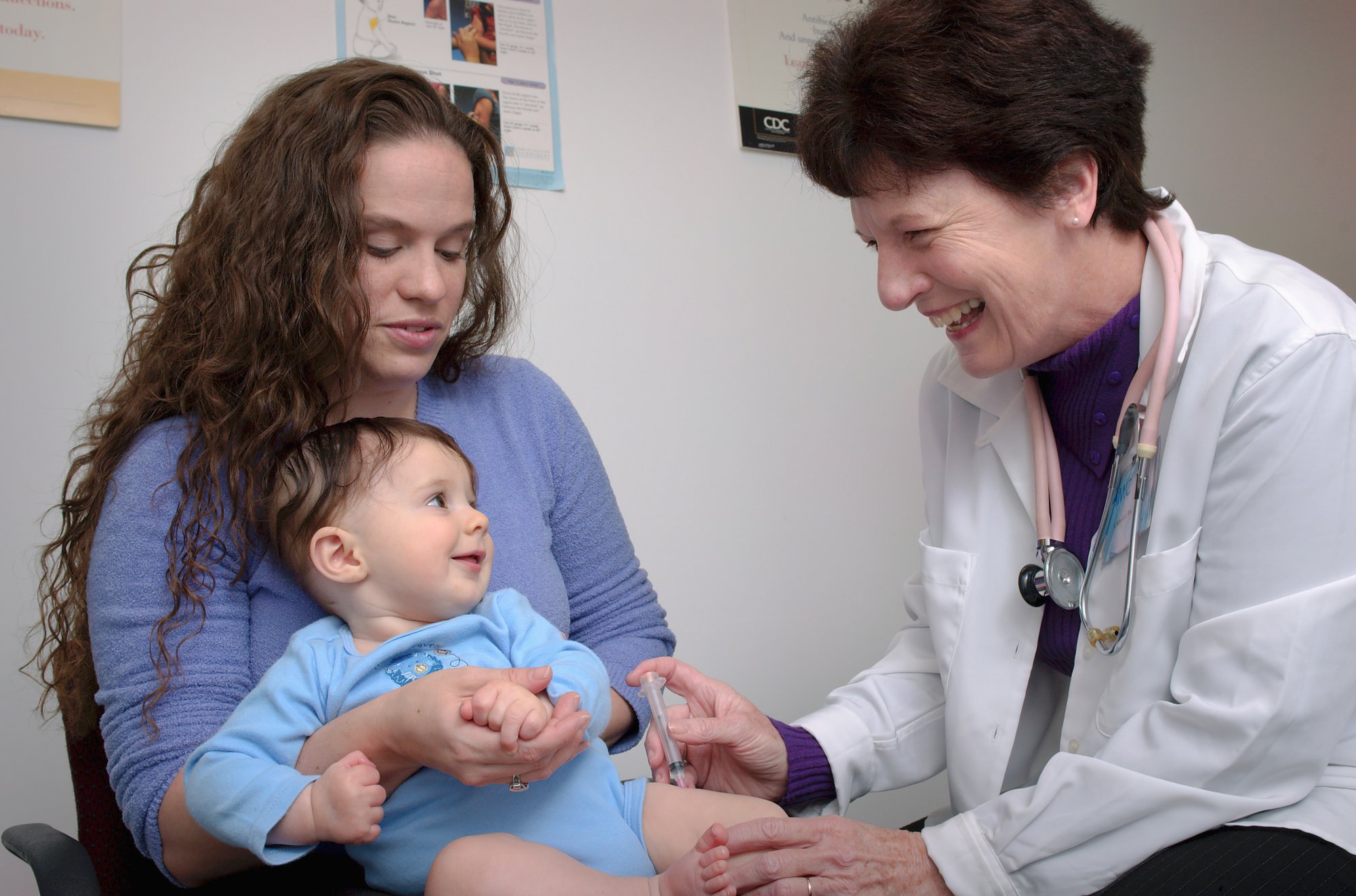Family Nurse Practitioner (FNP) Career Guide: Role Meaning, Scope of Practice, Salary, Job Outlook, and Steps to Become One

The role of a family nurse practitioner (FNP) involves working with different populations and caring for patients across their lifespans. FNPs place utmost importance on building and nurturing long-lasting relationships with their patients, serving as their clients’ primary care providers.
To help you decide whether the role is a good fit for you, we will closely examine the family nurse practitioner role. You will learn all the essentials, including how to become an FNP, your salary potential, your prospective job outlook, and more.
What Is an FNP (Family Nurse Practitioner)?
A family nurse practitioner (FNP) is an advanced practice registered nurse (APRN) specializing in family medicine who provides primary and family-focused healthcare to patients of all ages, from infants to adults to seniors. FNPs usually diagnose and treat illnesses, prescribe medication, conduct physical exams, help prevent disease, and provide health education in various communities, particularly underserved ones.
Family nurse practitioners can work in a variety of settings, including private practices, clinics, and private and state hospitals, where they serve as primary care providers and community health promoters.

Why Should You Consider a Career as an FNP: 10 Main Reasons
Becoming a family nurse practitioner requires more dedication, time, and financial investment than other nursing paths. However, it’s also one of the most rewarding nursing careers.
Here are 10 reasons why you should consider pursuing a career as a family nurse practitioner:
- Excellent Job Outlook: The services of FNPs are in high demand, making their job outlook much better than other nursing and non-nursing careers.
- Competitive Salary: Family nurse practitioner salaries are competitive and exceed the earnings potential of many other jobs. The average national yearly pay for FNPs surpasses that of other nurse practitioners by $3,000.
- High Job Satisfaction: Family nurse practitioners report high job satisfaction, stemming from both the challenges and rewards of the role, with the most critical factor being the visible, tangible impact their work has on their patients’ lives.
- Increased Independence: You will practice with significant autonomy in your workplace, with reduced oversight from superiors and other nursing personnel.
- Path to Leadership Positions: Since you will also have to lead healthcare teams, you can use the role to develop leadership skills that will eventually prove helpful in your career.
- Advance Your Career: Becoming a family nurse practitioner opens valuable paths up the career ladder and advancement opportunities. You can specialize in pediatrics, gerontology, or psychiatric care; work in settings such as primary or urgent care; or move into leadership roles, such as administrator, supervisor, nursing officer, or consultant.
- Many Non-Salary Benefits: The FNP role includes additional non-salary benefits, such as paid time off, vacation, continuing education programs, and tuition reimbursement.
- Holistic Care: The scope of practice specific to FNPs ensures you will provide care to a broad range of patients, families, and communities from childhood to old age.
- Build Strong Relationships: You build genuine, long-lasting relationships with patients and their families that often span decades and generations. You will be a deeply valued central figure in the community through your role and support.
- Impact Healthcare Distribution: FNPs are often central to reducing strain on the healthcare industry and providing much-needed care and attention to underserved and underrepresented communities.
Scope of Practice: What Does a Family Nurse Practitioner Do?
Family nurse practitioners are vital in providing comprehensive health services to individuals of all ages, especially in primary care. They diagnose and treat acute and chronic conditions, perform physical exams, prescribe medications, and develop treatment plans. FNPs emphasize preventive care and educate patients on lifestyle modifications, disease prevention, and overall wellness.
The scope of practice for FNPs varies by state, with some granting full practice authority and allowing family nurse practitioners to diagnose and prescribe independently. In contrast, others require them to collaborate with physicians, doctors, or other healthcare professionals. FNPs work in diverse settings, including private practices, community health centers, hospitals, and urgent care clinics. They also manage family health, addressing concerns from pediatrics to geriatrics, ensuring continuity of care throughout a patient’s life.
FNP Duties & Responsibilities
The FNP job is mainly patient-centric, encompassing a broad set of duties and responsibilities, including, but not limited to:
- Conduct routine physical examinations. Complete head-to-toe assessments are crucial for evaluating a patient’s condition before proceeding to other parts of the nursing process.
- Providing a diagnosis for a patient after completing the assessment stage.
- Maintaining thorough records of every patient’s medical history.
- Developing and following through with care plans
- Ordering lab and other diagnostic tests
- Interpreting the results of labs and tests
- Prescribing medication and other therapies on a need basis
- Monitoring a patient’s response to medication and adjusting treatment plans accordingly.
- Meeting the primary healthcare needs of all the patients who walk through the door of their practice.
- Monitoring patients with chronic conditions, such as diabetes.
- Working collaboratively with other healthcare professionals. Even though you will work independently for the most part, you can consult with another medical professional to develop the best care plans for your patient.
- Providing referrals when the medical situation warrants them.
- Counseling patients and their family members about health concerns.
- Promoting public health through social and environmental interventions and actions.
What Qualities Do You Need to Become a Family Nurse Practitioner?
While the FNP role can offer greater career and financial fulfillment than other nursing positions, it also requires more training. Here are the main qualities you need to become a successful family nurse practitioner:
- Expertise in multiple nursing specialties – Your chosen profession has a comprehensive scope of practice. Instead of focusing on excelling in a specific nursing specialty, you'll always need to be on top of – and an expert at – multiple nursing specialties.
- A higher degree of accountability – With greater autonomy comes greater responsibility. You can provide diagnosis, treat, and prescribe medication, but you must be all the more vigilant and responsible. You don’t want to be liable for errors or nursing mistakes.
Community-directed attitude – Because they continuously interact with and care for the same patients, family nurse practitioners develop tight-knit, long-term relationships with the people under their care. So, if creating strong connections is central to you as a nursing professional, this role will fit you like a glove.

FNP vs. NP: What Is the Difference?
The main difference is that family nurse practitioners belong to a subspecialty of the Nurse Practitioner role. Consequently, the two differ in their scopes of practice, areas of specialty, and the educational paths required to practice:
- Specialization: NPs can have a broader array of specialties, including women’s health care, pediatric nursing, gerontology and geriatric nursing, psychiatric and mental health care, and neonatal nursing practice. FNPs specialize in family medicine and provide care to all patient populations and in various medical situations.
- Education: All NPs need to earn a master’s in nursing, but the MSN FNP program proves broader and more flexible in scope and preparation. Degrees for other specializations are narrower and prepare learners for a specific nursing role. For instance, completing an MSN PMHNP will strictly limit the scope of practice to psychiatry and mental health. Similarly, an MSN Ed is designed to prepare graduates for educational roles, such as nurse educators.
- Certification: Nurse practitioners earn certification based on their specialty. For example, acute care NPs (ACNPs), pediatric NPs (PNPs), and psychiatric-mental health NPs each have their own specialty boards. FNPs can obtain certification through either the American Academy of Nurse Practitioners Certification Board (AANPCB) or the American Nurses Credentialing Center (ANCC).
- Nursing role: All family nurse practitioners are NPs, but not all NPs are family nurse practitioners. Still, FNPs account for the majority of all nurse practitioners. Data from the American Association of Nurse Practitioners (AANP) indicated that out of the current 431,000 to 463,500 NPs licensed in the US, almost 68.7% are certified as FNPs.
- Patient focus: Nurse practitioners' focus can vary by specialization, while FNPs focus on treating individuals and families throughout their lifespans.
- Work settings: Nurse practitioners can work in various settings, including hospitals, clinics, specialty practices, and emergency departments, while FNPs are concentrated in primary care clinics, private practices, and community care centers.
FNP vs. Doctor in Medicine (MD)
Family nurse practitioners often serve as the primary care provider for their patients, a role they share with physicians. However, they differ in overall responsibility, preparation, and licensure level.
Here are the main differences between the two roles and how they affect the day-to-day work experience of each:
- Licensing boards: Doctors earn licensure from a medical board, while FNPs earn licensure from a nursing board. This can lead to greater preparation among MDs.
- Period of preparation: Doctors spend more time training for the role. The average time to become a fully licensed doctor in the US is 10 to 14 years, compared to 2 to 10 years to become an FNP.
- Workplace autonomy: Family nurse practitioners must work collaboratively with physicians, other medical professionals, and other medical staff.
- Writing prescriptions: FNPs also hold prescriptive authority for controlled substances in all 50 states and DC. Still, they can only prescribe medication if they have an established prescriber-patient relationship and have previously consulted the patient's medical history.
Accessibility: FNPs are generally the first type of primary care provider patients see, as physicians are in a perpetual national shortage. There are approximately 269,500 family nurse practitioners, compared to the 100,940 currently licensed family medicine Physicians, the closest doctoral role. This means that patients can easily book an appointment with an FNP while waiting a considerable time to see an MD.

Career Options: Where Can FNPs Work?
Family nurse practitioners work in a wide variety of environments. Some of the most popular options for FNPs include:
- Private practice
- Clinics
- Community centers
- Physician’s offices
- Hospitals
- Outpatient clinics
- Telehealth centers
You should always review the job placement demand in your area to get an image of your future potential workplace. However, considering the projected increase of new job openings for FNPs and the role's versatility, you are sure to find placement quickly once certified.

How to Become a Family Nurse Practitioner?
If you aim to become a family nurse practitioner, there are specific educational and certification paths that you can pursue. These depend on your current preparation and whether you are a licensed medical professional, whether you wish to study full- or part-time, and whether you can attend your program in person or online.
There is no national standard for becoming a family nurse practitioner, with each state freely regulating the process, including setting requirements, the licensure process, and the scope of practice. However, there is a general academic path you can follow, regardless of where you reside or your current status.
Generally, becoming an FNP can take 8 to 10 years if you are starting from zero, and the AANP states that NPs typically complete at least 6 years of education. To limit your time spent in school and ensure that you are achieving your career goals as effectively as possible, we have prepared a tutorial that you can follow to learn how to become a family nurse practitioner:
1. Complete an Accredited Nursing Program
Whether you pursue a family nurse practitioner role early or want to advance your career, the first step in your journey is to enroll in a nursing program that will qualify you to become an RN. Although you can do so by earning an associate degree in nursing or a bachelor's, getting a BSN is an integral part of becoming an FNP.
Here are the possible educational paths you can pursue with zero nursing experience:
- Enroll in a 3-to-4-year Bachelor’s Degree in Nursing (BSN) program.
- Pursue a 2-year Associate’s Degree in Nursing (ADN). With this degree, you can enter the healthcare environment earlier and see if it’s the job for you. Once you get your ADN (or ASN), you can obtain your BSN degree through either a BSN program or a 1-year bridge RN-to-BSN program.
If you need help deciding which path to take to become an RN, read our ADN vs. BSN comparison to find the arguments for both.
Nightingale College’s BSN Program is comprehensive and follows a blended distance-learning format, combining online didactic instruction with on-site field learning. It takes approximately 32 months to complete.
2. Pass the NCLEX-RN
Once you complete your program of choice, you become eligible to attend the NCLEX-RN. The five-hour exam will test your skills and knowledge to be a registered nurse, which both an ADN and BSN program should have prepared you for.
Passing it grants you the license to work as an RN in any eligible healthcare setting.
3. Gain Experience
Now that you hold your RN licensure, you can move on to the next step: working as a registered nurse to accumulate first-hand nursing experience.
Practicing as an RN will help you sharpen your skills and become a better professional. An FNP career comes with great responsibility, so gaining clinical experience as a registered nurse is crucial. Going through nursing school is a must, but so is applying all the theoretical knowledge to real-life scenarios.
You need at least two to four years of bedside experience before becoming a family nurse practitioner.
4. Earn an FNP Master’s Degree
The Master’s Degree in Nursing is the minimum educational level that enables you to practice as a family nurse practitioner. For the most part, Master’s programs take around two years to complete and require prospective learners to have completed a Bachelor’s Degree in nursing. Find out how to get a master’s in nursing and start your career right.
Keep in mind that not any master’s in nursing will do. You must find a program with an FNP specialty. While it will have some core curriculum standards for all MSN programs, it also offers FNP-specific courses and preparation in patient-provider relationship management and patient-centered care.
Nightingale College offers an excellent CCNE-accredited MSN FNP Program designed for aspiring learners seeking to become family nurse practitioners. We strongly believe that quality education is the foundation of a successful career, and our Nightingale College programs deliver on that belief. The FNP Master’s program combines online instruction, one in-person seminar, and a preceptorship experience to provide quality education in the most accessible manner within a concise 24-month program.
Enroll in our MSN FNP Program and become a family nurse practitioner!
5. Get Certified
Although certification is not mandatory for FPNs, many states consider it a licensure requirement. Therefore, it is strongly recommended that family nurse practitioners pursue this credential.
Being certified comes with numerous benefits for nurses:
- It gives you a competitive advantage in the field.
- It increases your confidence in your practice, making you a better nurse.
- It solidifies your professional reputation and earns the respect of your peers.
Read more about why you should consider getting certified.
The Family Nurse Practitioner Certification (FNP-BC) offered by the American Nurses Credentialing Center (ANCC) is the recommended certification option for FNPs. To obtain it, you need to meet the following eligibility requirements:
- Hold a current, active RN license.
- Hold a Master’s, post-graduate certificate, or a Doctor of Nursing Practice (DNP) degree from an accredited family nurse practitioner program.
- Complete comprehensive graduate-level courses in advanced physiology/pathophysiology, health assessment, and pharmacology.
The certification is valid for five years. You can apply for renewal after its expiry, but bear in mind that you need to meet specific criteria, some of which are also state-dependent. However, you also have general requirements, such as earning a qualifying degree or completing at least 500 hours of faculty-supervised clinical experience. The ANCC constantly updates its requirements and standards, so you should continuously review the current criteria. For instance, since 2024, the ANCC has required test-out/course-by-exam coursework, requiring applicants to complete at least three comprehensive, graduate-level APRN core courses for eligibility.
6. Keep Up with Your Continuing Education Requirements for FNPs
A career in nursing requires you to be a lifelong learner. So, continuing education will be part of your experience as a family nurse practitioner, as you may need to fulfill specific requirements to renew your nursing license, nursing certification, or APRN certification. Continuing education is not a chore or another step to cross off the list. It is a great way to ensure you stay up to date with the latest developments in your field. In the end, it makes you a better nurse. And everyone stands to benefit from that.
You should always check with your state board and credentialing center about the continuing education requirements to keep your RN license and certification active.
7. Reap the Benefits of Your Hard Work
Once you become licensed and certified as an FNP, you can reap the rewards of your new position.
An FNP role gives you access to many nursing career advancement opportunities, allowing you to further your professional journey. Beyond additional certifications extending your duties for your position, you can pursue administrative positions or earn doctoral-level degrees, such as a Doctor of Nursing Practice or a Ph.D. in Nursing.
What Areas Can a Family Nurse Practitioner Specialize In?
The most popular areas of specialization for family nurse practitioners are family, primary, and emergency care, but they can also include certifications in neonatal, psychiatric, or women’s health.
Here is a list of other frequent career advancement directions for a family nurse practitioner:
- Dermatology nursing
- Cardiology and cardiac nursing
- Oncology nursing
- Nephrology
- Orthopedics
- Palliative care
If you aim to advance your FNP career through specialization, you need to attend post-master's certification programs.

How Much Does a Family Nurse Practitioner Make: FNP Salary in 2025
The national average salary for FNPs as of January 2025 is $129,976 per year, or $62.49 per hour, according to the most recent data from the American Association of Nurse Practitioners, which is $1,486 higher than the nurse practitioner salary in general. Washington ($144,945), the District of Columbia ($144,616), and New York ($140,010) are the top three highest-paying states for family nurse practitioners, according to ZipRecruiter. At the other end of the spectrum, FNPs have the lowest earning potential in Florida ($95,635 per year), followed by West Virginia ($99,075 per year) and Arkansas ($105,824).
However, at the local level, family nurse practitioners earn the highest yearly salaries in Nome, Arkansas ($158,753); Berkeley, California ($156,698); Berlin Corners, Vermont ($156,413); Jewett, Texas ($155,725); and Marin County, California ($154,725).
Read our nursing salary by state study to discover how family nurse practitioner salaries compare to other healthcare professions.
Family Nurse Practitioner Job Outlook and Demand
The nurse practitioner occupation is the fastest-growing in the country, with FNPs representing the majority of NPs (70%). The AANP reports that of 431,000 nurse practitioners, 68.7% (296,097) are family nurse practitioners. According to the BLS, the overall employment of NPs is projected to increase by 46% from 2023 to 2033, surpassing the 40% of MSN-level nursing jobs, the 9% increase for all healthcare diagnosing and treating practitioners, and the 4% growth for all occupations.
Assuming the same rate of increase for family nurse practitioners, we can expect 136,205 new job openings for FNPs by 2033, bringing the total national pool to 432,302.
What is central to know is that nurse practitioners, overall, represent the fastest-growing type of primary care provider in the industry, with family nurse practitioners making up the largest share of the NP workforce. Thus, FNPs are in high demand and are expected to have a good job outlook in the future.
Why Are Family Nurse Practitioners in High Demand?
There are several reasons behind this monumental FNP job outlook:
- Given their advanced training, FNPs perform many of the same services as physicians. However, they are becoming increasingly recognized as a cornerstone of healthcare. Therefore, FNPs will be increasingly used in team-based care models, particularly in hospitals, physician offices, clinics, and other ambulatory care settings, where patients require preventive and primary care.
- The aging of the US population increases the need for healthcare professionals. As baby boomers age, they will experience ailments and complex conditions that require medical care, and FNPs will be some of the primary healthcare professionals keeping them healthy.
In this context, US News ranks Nurse Practitioners as #1 among the Best Jobs in the US in 2025. With its excellent outlook and rapid growth, this profession is worth considering for aspiring nurses.

Ready to Take Your Skills to the Next Level and Become an FNP?
With a profession as versatile as nursing, it’s easy for prospective RNs to choose the aspects of nursing practice they value the most and pursue nursing jobs that bring those aspects to the forefront.
Some enjoy helping as many patients as possible on a rolling basis and finding the ER nursing that suits them best. Other RNs prefer working with babies or expectant mothers and find careers in labor and delivery nursing or the neonatal unit most beneficial. If you prefer controlled environments and significant autonomy, consider a career as a nurse anesthetist.
But if you are looking for a nursing role that offers workplace independence, great career perspectives, the chance to build genuine connections with your patients, as well as attractive salary and non-salary benefits, becoming a family nurse practitioner is the best option for you.
Nightingale College’s MSN FNP Program will prepare you to be the best-certified family nurse practitioner with the maximum flexibility and accessibility possible for a CCNE-certified learning path. By attending online instruction classes, the in-person seminar, and the preceptorship experiences included in the program, you can receive the necessary credentials to work as a family nurse practitioner in just 24 months.
Enroll in the MSN FNP Program at Nightingale College and advance your career!
Family Nurse Practitioner FAQs
What Education Is Required to Be a Nurse Practitioner?
The lowest degree required to become a family nurse practitioner is a Master of Science in Nursing. However, you should also enroll in a specific MSN FNP path to ensure that you receive all the necessary preparation to deal with the day-to-day challenges of the FNP role. While not mandatory, it is also recommended that you earn your FNP certification from an accredited body, such as the American Nurses Credentialing Center (ANCC), as most states will require it for licensure.
How Long Does It Take to Become a Family Nurse Practitioner?
Depending on your current level of certification and work experience, becoming a family nurse practitioner can take 2 to 10 years.
- If you are starting from zero, you must attend a 3-to-4-year BSN program, pass the NCLEX-RN, accumulate between 2 and 4 years of bedside experience, and finally complete the 2-year MSN FNP program. This would take you from 7 to 10 years.
- If you have previously earned an ADN, you should pursue a 1-year RN-to-BSN path, accumulate the necessary work experience, and earn your Master’s degree. The total formative period for this path would amount to 5 to 7 years.
- If you already have a BSN degree and some bedside experience, you need only complete a two-year MSN FNP program to become certified.
Multiple educational paths may apply to your specific context. Read our article on how long nursing school is, depending on your chosen route.
How Long Do You Have to Be an RN Before Becoming an FNP?
Once you are a certified RN, you must accumulate between 2 and 4 years of bedside experience to be eligible for most Master’s programs. However, if you are an ADN-prepared registered nurse, you must earn your BSN through an accelerated RN-to-BSN track, which can add an extra year to your wait.
Then, you only need to complete the 2-year MSN FNP program and be ready to apply for a job. So, the overall waiting period for an RN to become an FNP can range from only 2 years to 7 years, depending on your current education and experience.
What Does the Day in the Life of a Family Nurse Practitioner Look Like?
Considering the wide range of responsibilities required of an FNP, no workday will resemble another. You will have to attend to a varied patient pool, ranging in age and background. Additionally, you will provide aid and assistance for a broad spectrum of ailments and conditions. Additionally, every day in the life of a family nurse practitioner contributes to building better relationships with your recurring patients, their families, and your community. In other words, the FNP work experience can be dynamic and rewarding.
Can an FNP Work in a Hospital?
Yes, hospitals are among the most common work environments for family nurse practitioners, especially given the shortage of doctors and physicians and an FNP's potential to step into their role.
Can Family Nurse Practitioners Work in Emergency Settings?
While an FNP can fulfill some duties in an ER environment, you usually need specific training and accreditation for such a setting. Fortunately, ER nursing is one popular specialization you can pursue once you complete your FNP educational path.
What’s the Difference Between a Physician’s Assistant and a Family Nurse Practitioner?
The difference between a family nurse practitioner and a physician’s assistant lies in the training models they follow. FNPs follow a nursing model, while PAs use the medical model. Consequently, family nurse practitioners (and NPs in general) adopt a patient-centered approach to testing, diagnosis, and treatment rather than the disease-focused medical model. As an FNP, you must develop positive relationships with long-term patients and the community.
Reference List
- American Academy of Nurse Practitioners Certification Board. (n.d.). Certification qualifications. Retrieved October 29, 2025, from https://www.aanpcert.org/certs/qualifications
- American Academy of Nurse Practitioners Certification Board. (n.d.). Family Nurse Practitioner (FNP). Retrieved October 29, 2025, from https://www.aanpcert.org/certs/fnp
- American Association of Nurse Practitioners. (2024). National nurse practitioner compensation report 2024. AANP Research Department. https://storage.aanp.org/www/documents/no-index/research/1.Comp.NP-Report24.pdf
- American Association of Nurse Practitioners. (2025, February). Nurse practitioners are the providers of choice for millions of Americans [Infographic]. https://storage.aanp.org/www/documents/NP_Infographic_111122.pdf
- American Association of Nurse Practitioners. (n.d.). All about NPs. Retrieved October 29, 2025, from https://www.aanp.org/about/all-about-nps
- American Nurses Credentialing Center. (2025). ANCC certification handbook. https://www.nursingworld.org/globalassets/certification/ancc-certification-handbook.pdf
- American Nurses Credentialing Center. (n.d.). ANCC certifications. Retrieved October 29, 2025, from https://www.nursingworld.org/our-certifications/
- American Nurses Credentialing Center. (n.d.). Family nurse practitioner certification (FNP-BC™). Retrieved October 29, 2025, from https://www.nursingworld.org/our-certifications/family-nurse-practitioner/
- U.S. News & World Report. (n.d.). The 100 best jobs. Retrieved October 29, 2025, from https://money.usnews.com/careers/best-jobs/rankings/the-100-best-jobs
- ZipRecruiter. (n.d.). What is the average family nurse practitioner salary by state? Retrieved October 29, 2025, from https://www.ziprecruiter.com/Salaries/What-Is-the-Average-Family-Nurse-Practitioner-Salary-by-State

